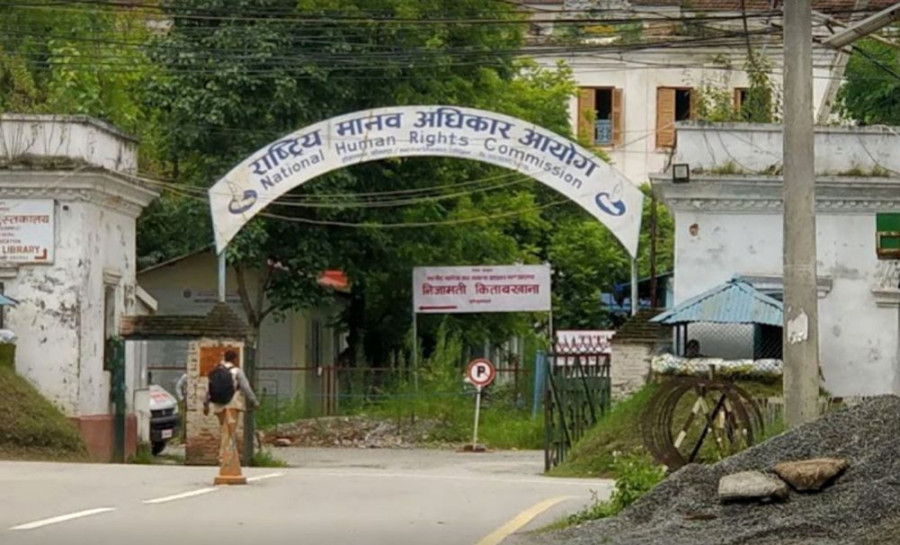National
War victims ask rights body to recall member from selection panel
Unhappy with the shortlist of candidates for transitional justice commissions, they want to forestall nominations.
Binod Ghimire
The insurgency-era victims have urged the National Human Rights Commission to withdraw its member from the committee to nominate the candidates for the two transitional justice mechanisms, saying the selection process is opaque and politically manipulated.
A day after demanding that the government dissolve the former chief justice Om Prakash Mishra-led panel, the victims’ representatives, submitting their memorandum to the commission’s leadership, said the panel cannot pick the right persons to lead the mechanism. They have taken a serious exception to the shortlist of candidates made public on April 27.
“We asked commission chairperson Top Bahadur Magar and his team to recall their representative immediately,” said Gopal Shah, chair of the Conflict Victims’ National Network. “Magar said he would make a decision after discussions.”
Commissioner Lily Thapa represents the NHRC in the recommendation panel. As per the Enforced Disappearances Enquiry, Truth and Reconciliation Commission Act, four of the five members, including the chair, of the panel are appointed by the Cabinet, while the chair or the chair’s nominee among the human rights commissioners is the fifth member. Withdrawal of the commission’s representatives means the panel will not be able to recommend the names as the Act doesn’t envision decisions by a majority.
Along with the human rights commission, the victims’ representatives also submitted their memorandum to Agni Kharel, the human rights and transitional justice adviser to Prime Minister KP Sharma Oli, demanding the replacement of the Mishra-led committee with a more credible one. Victims are demanding their representation in the new committee.
“This recommendation committee treated us as mere service getters, totally failing to acknowledge that we are the most prominent stakeholders of the transitional justice process. It didn’t consult us for a single time before publishing the shortlist,” said Suman Adhikari, founding chairperson of the Conflict Victims Common Platform. “This is why we are demanding our representation in the selection committee.”
Of the 111 applicants, 34 have made it to the shortlist. Of them, eight have been recommended for chairpersons and the remaining as members.
The selection committee had set three modalities for application. While individual aspirants can directly apply for any position, different human rights and victims’ organisations also made recommendations at the organisational level.
Similarly, the recommendation committee can find the candidates on its own. The provision of organisational nominations and selection by the committee itself were included, as renowned figures might hesitate to apply for commission positions. However, the committee chose not to select the candidates on its own. “It is known that some competent personalities wouldn’t apply. Why didn’t the selection committee not reach out to them?” Shah questioned.
The victims’ groups are preparing to put their concerns before the top leaders of the major parties in person. “We are meeting the prime minister on Sunday where we will clearly say the names recommended by the present committee are not acceptable to us,” said Shah. “We are meeting Nepali Congress President Sher Bahadur Deuba on Monday and have sought time from CPN (Maoist Centre) chair Pushpa Kamal Dahal as well.”
The Mishra-led five-member panel has called the shortlisted candidates to give presentations on May 8, 9 and 10 on how they would address transitional justice issues. It will nominate 10 names based on the presentations, given that the panel remains intact.
The Truth and Reconciliation Commission and the Commission of Investigation on Enforced Disappeared Persons have been defunct for around three years in the absence of their office bearers. The government in July 2022 decided not to extend the terms of the chairpersons and members saying new teams would be brought after amending the Act. The Act was revised in August last year, but the commissions still remain vacant.




 11.12°C Kathmandu
11.12°C Kathmandu














